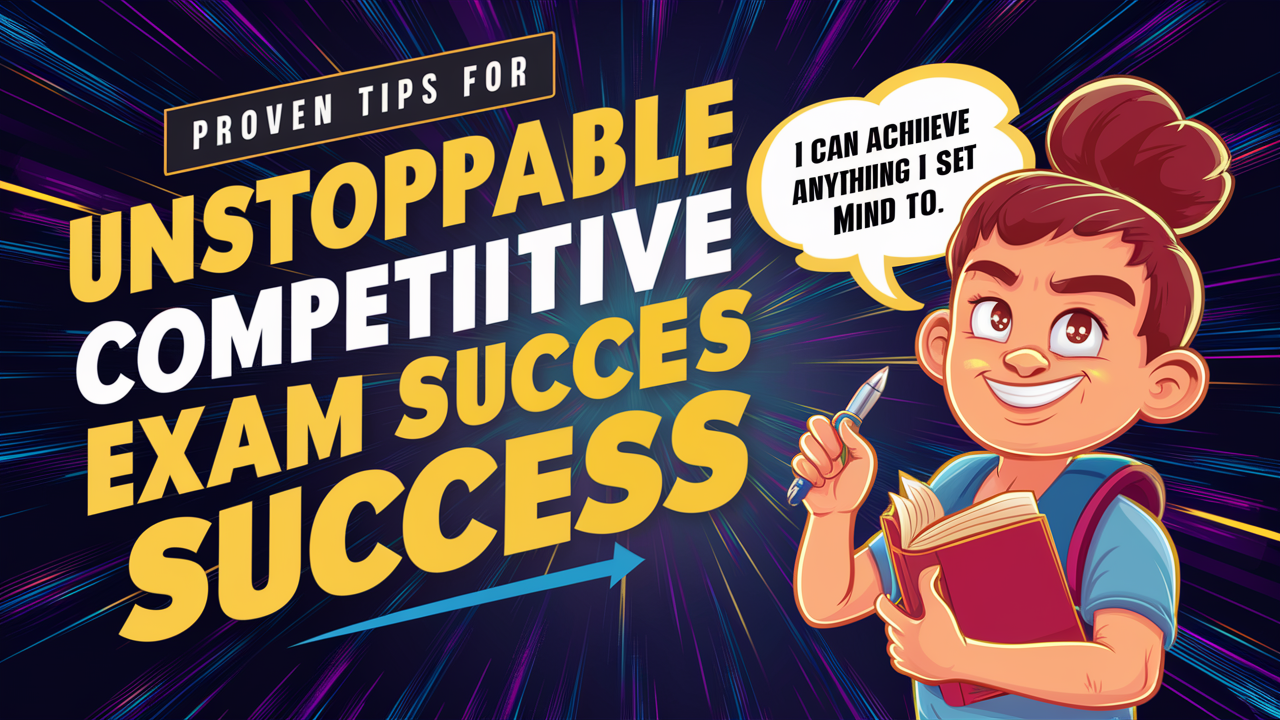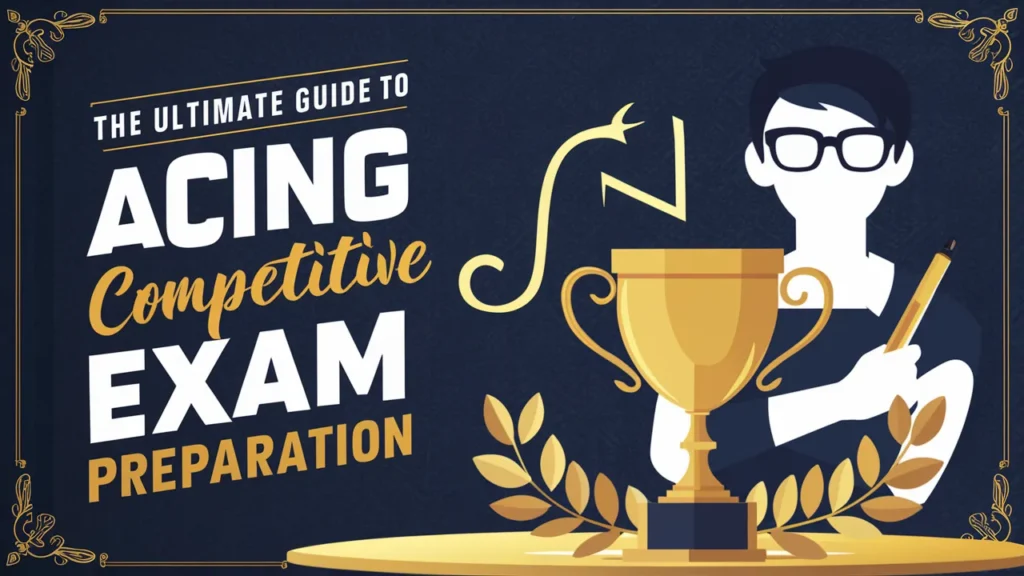
Competitive Exam Success
Preparing for a competitive exam can be a daunting task, especially when the stakes are high. With the right strategies and a disciplined approach, you can transform this challenging journey into a rewarding experience. Whether you’re aiming for college entrance exams, professional certifications, or any other competitive test, these seven tips will guide you towards effective preparation and success.
1. Understand the Exam Format and Syllabus
Before you start your preparation, it’s crucial to have a comprehensive understanding of the exam format and syllabus. This knowledge will help you create a focused study plan and avoid wasting time on irrelevant topics.
Key Steps:
- Research the Exam Structure: Understand the types of questions (multiple-choice, essay, etc.), the number of sections, and the marking scheme.
- Identify Key Topics: Go through the syllabus to identify the main topics and subtopics. Prioritize them based on their weightage and difficulty level.
- Gather Study Materials: Collect textbooks, reference books, and online resources that cover the entire syllabus comprehensively.
2. Create a Realistic Study Plan
A well-structured study plan is the backbone of effective exam preparation. It helps you stay organized, track your progress, and ensure that you cover all necessary topics within the available time.
Key Steps:
- Set Clear Goals: Define what you need to achieve each week or month. This could include completing certain chapters, practicing a specific number of questions, or mastering particular skills.
- Allocate Study Time Wisely: Dedicate more time to difficult subjects and less time to areas where you’re already strong. Ensure you have a balanced approach.
- Include Breaks and Leisure: Avoid burnout by scheduling regular breaks and leisure activities. A refreshed mind absorbs information better.
3. Use Active Learning Techniques
Active learning techniques are more effective than passive reading. They engage your brain, improve retention, and make studying more enjoyable.
Key Techniques:
- Flashcards: Use flashcards for quick revision of key concepts, formulas, and vocabulary. Digital flashcards can be especially handy for on-the-go learning.
- Mind Maps: Create mind maps to visualize complex topics and their interconnections. This method is particularly useful for subjects that require understanding of relationships between different concepts.
- Mnemonics: Develop mnemonics to remember lists, sequences, and other information that is hard to memorize.
4. Practice with Past Papers and Mock Tests
Practicing with past exam papers and mock tests is essential for understanding the exam’s difficulty level and time constraints. It also helps you identify your strengths and weaknesses.
Key Steps:
- Simulate Exam Conditions: Take mock tests under timed conditions to get used to the pressure of the actual exam.
- Analyze Your Performance: Review your answers to identify areas where you make mistakes. Focus on improving these areas in subsequent study sessions.
- Regular Practice: Make practicing past papers a regular part of your study routine to continually improve your speed and accuracy.
5. Develop Effective Time Management Skills
Managing your time effectively during both the preparation phase and the actual exam is crucial for success.
Key Strategies:
- Daily Timetable: Create a daily timetable that includes dedicated study periods, breaks, and time for other activities. Stick to this routine consistently.
- Prioritize Tasks: Tackle high-priority tasks first, especially those related to weaker subjects or complex topics.
- Use Time Management Tools: Apps and tools like Pomodoro timers can help you manage study sessions and breaks efficiently.
6. Maintain a Healthy Lifestyle
Your physical and mental health significantly impact your exam performance. A healthy lifestyle will help you stay focused, energized, and stress-free.
Key Tips:
- Balanced Diet: Eat a balanced diet rich in vitamins, minerals, and antioxidants to support brain function.
- Regular Exercise: Engage in regular physical activities like jogging, yoga, or even brisk walking to reduce stress and improve concentration.
- Adequate Sleep: Ensure you get at least 7-8 hours of sleep each night. Sleep is essential for memory consolidation and cognitive function.
7. Manage Stress and Stay Positive
Exam preparation can be stressful, but managing stress effectively and maintaining a positive mindset can significantly enhance your performance.
Key Strategies:
- Relaxation Techniques: Practice relaxation techniques such as deep breathing, meditation, or progressive muscle relaxation to calm your mind.
- Positive Affirmations: Use positive affirmations to boost your confidence. Remind yourself of your abilities and past successes.
- Avoid Negative Thoughts: Stay away from negative thoughts and people who may demotivate you. Surround yourself with supportive friends and family.
Conclusion:
Acing a competitive exam requires a combination of strategic planning, disciplined study habits, and a healthy lifestyle. By understanding the exam format, creating a realistic study plan, employing active learning techniques, practicing with past papers, managing your time effectively, maintaining a healthy lifestyle, and managing stress, you can enhance your preparation and increase your chances of success. Remember, consistent effort and a positive mindset are key to overcoming challenges and achieving your academic goals. Good luck!
By following these tips, you’ll not only improve your chances of acing your competitive exams but also develop a sustainable and effective study routine.


